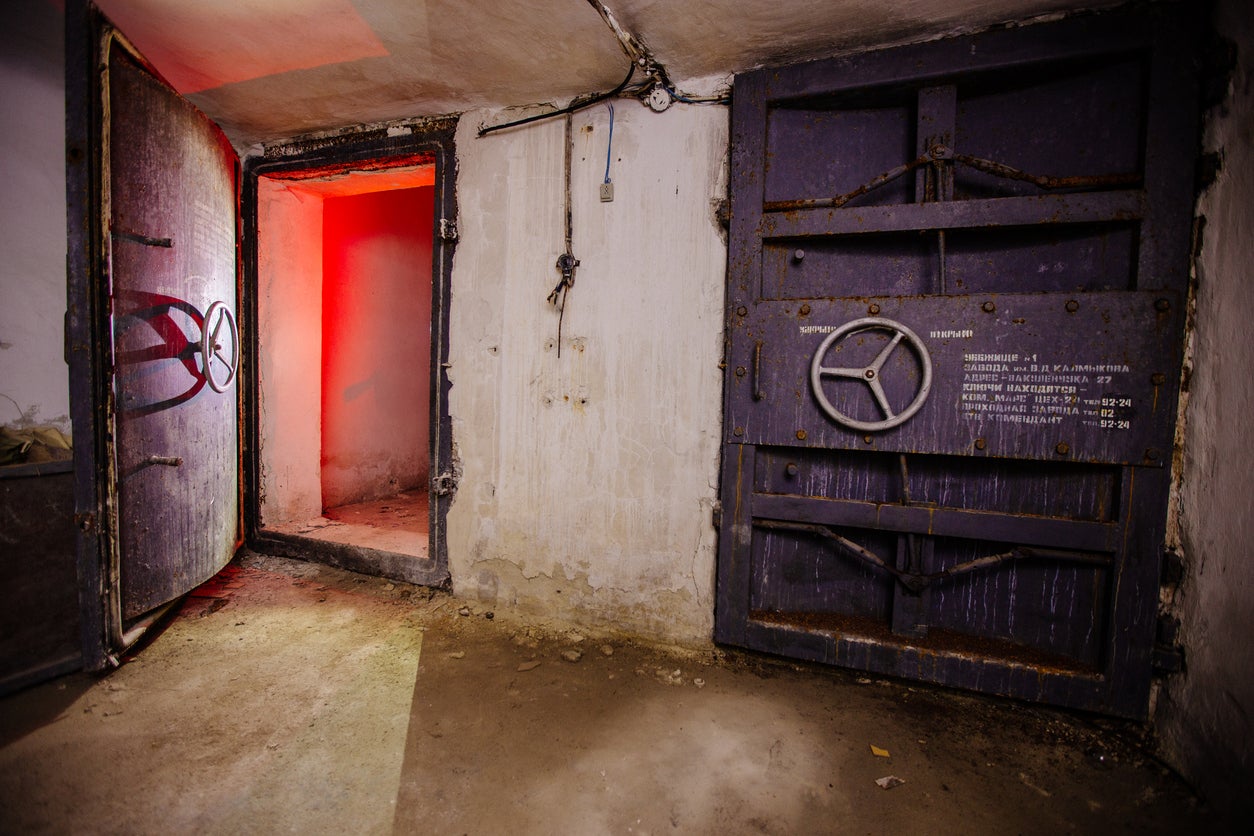Latvians told to turn basements into bomb shelters amid fears Russia could target Baltic states next
Vilnis Kirsis, the mayor of Riga, Lativa’s capital, says people should be ready to shelter in their cellars in case of ‘emergencies’
Your support helps us to tell the story
From reproductive rights to climate change to Big Tech, The Independent is on the ground when the story is developing. Whether it's investigating the financials of Elon Musk's pro-Trump PAC or producing our latest documentary, 'The A Word', which shines a light on the American women fighting for reproductive rights, we know how important it is to parse out the facts from the messaging.
At such a critical moment in US history, we need reporters on the ground. Your donation allows us to keep sending journalists to speak to both sides of the story.
The Independent is trusted by Americans across the entire political spectrum. And unlike many other quality news outlets, we choose not to lock Americans out of our reporting and analysis with paywalls. We believe quality journalism should be available to everyone, paid for by those who can afford it.
Your support makes all the difference.Latvians have been told to convert their basements into air raid shelters amid fears that Vladimir Putin could target the Baltic states next.
Vilnis Kirsis, the mayor of Riga, Lativa’s capital, said people should be ready to shelter in their cellars
“We call on everyone during the big clean-up, but also afterwards, to ensure that your cellars and your basements can be used as shelters in case of emergencies,” he said

Latvia, a former Soviet republic, shares a 133-mile long border with Russia and has been a member of Nato since 2004.
Fears have been growing that the Russian president could target Latvia or one of the neighbouring Baltic countries Estonia or Lithuania, which are also members of the military alliance amid the Kremlin’s invasion of Ukraine.
Riga’s civil defence commission has also started preparing shelters in public buildings across the city in preparation for a potential attack.
Gints Reinsons, head of the commission, said the city would prepare 100 shelters each month until the end of the year.
“The basements of public buildings, schools, retirement homes, hospitals and town halls will be inspected by the authorities who will prepare them to serve as hiding places in the event of an attack,” he told local media.
In January the three Baltic states agreed to set up a common defence zone on their borders with Russia and Belarus - an ally of Moscow - amid increased aggression by the Kremlin.

The three countries’ defence ministers met in Riga to approve the construction of "anti-mobility defensive installations" on their eastern frontiers and to develop missile-artillery cooperation.
“Russia’s war in Ukraine has shown that in addition to equipment, ammunition and manpower, we also need physical defensive structures at the border from the first meter to protect Estonia,” Hanno Pevkur, Estonia’s defence minister, said at the time.
Estonia said it would build 600 bunkers along its 183-mile border with Russia, with an initial budget of €60 million, according to Estonian public broadcaster ERR.
Each bunker is designed to accommodate 10 soldiers and the defence ministry plans to start construction in early 2025.

Join our commenting forum
Join thought-provoking conversations, follow other Independent readers and see their replies
Comments